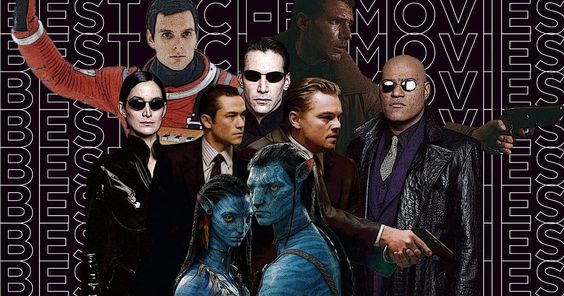The 150 Greatest Science Fiction Movies of All Time

In the realm of cinema, science fiction has long stood as a beacon of imagination, innovation, and reflection. These films are not just a window into other worlds and futures but are also mirrors reflecting our own society and its potential. The 150 greatest science fiction movies of all time comprise a diverse array of storytelling that ranges from dystopian visions to interstellar journeys, from AI quandaries to alien encounters.
At the top of the list is Stanley Kubrick’s “2001: A Space Odyssey,” a seminal work that transcends time with its profound narrative and visual effects. Ridley Scott’s “Blade Runner,” with its neo-noir exploration of artificial intelligence and humanity, closely follows. Steven Spielberg’s “E.T. the Extra-Terrestrial” tugs at the heartstrings with its touching story of friendship across species.
James Cameron’s “The Terminator” series redefined action within the sci-fi genre, blending time-travel narratives with relentless suspense. His other masterpiece, “Aliens,” expanded on the horror elements introduced in Ridley Scott’s original “Alien,” creating a tense atmosphere that has rarely been matched in cinema.
Christopher Nolan’s mind-bending “Inception” took audiences through layered dreamscapes, while his space epic “Interstellar” grappled with cosmic voyage and its emotional toll. George Lucas’s original “Star Wars” trilogy sparked an unparalleled cultural phenomenon with its epic storylines and imaginative worlds.
Among animated features, Pixar’s “WALL-E” stands out for its poignant commentary on environmentalism and consumerism wrapped up in an endearing love story between robots. Meanwhile, “The Matrix,” directed by the Wachowskis, questions reality itself within its cyberpunk framework.
Other notable entries in this illustrious list include Fritz Lang’s “Metropolis,” known for its groundbreaking visuals; Terry Gilliam’s “Brazil,” which satirizes bureaucracy through an Orwellian lens; and Andrei Tarkovsky’s enigmatic and atmospheric “Solaris,” challenging viewers’ understanding of consciousness and identity.
Contemporary films such as Denis Villeneuve’s “Arrival,” which delves into language and time perception through an alien first contact scenario, continue to push the boundaries of what science fiction can achieve in terms of cinematic storytelling.
Each film included amongst the greatest shines a light on different facets of human experience and technological speculation, reminding us that science fiction is more than just entertainment; it is a powerful medium for exploring the complexities of our existence.






